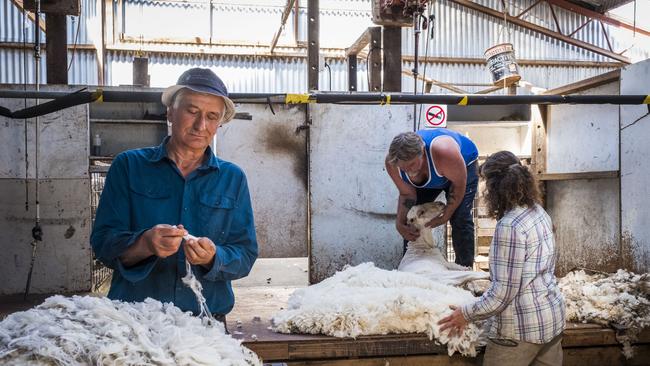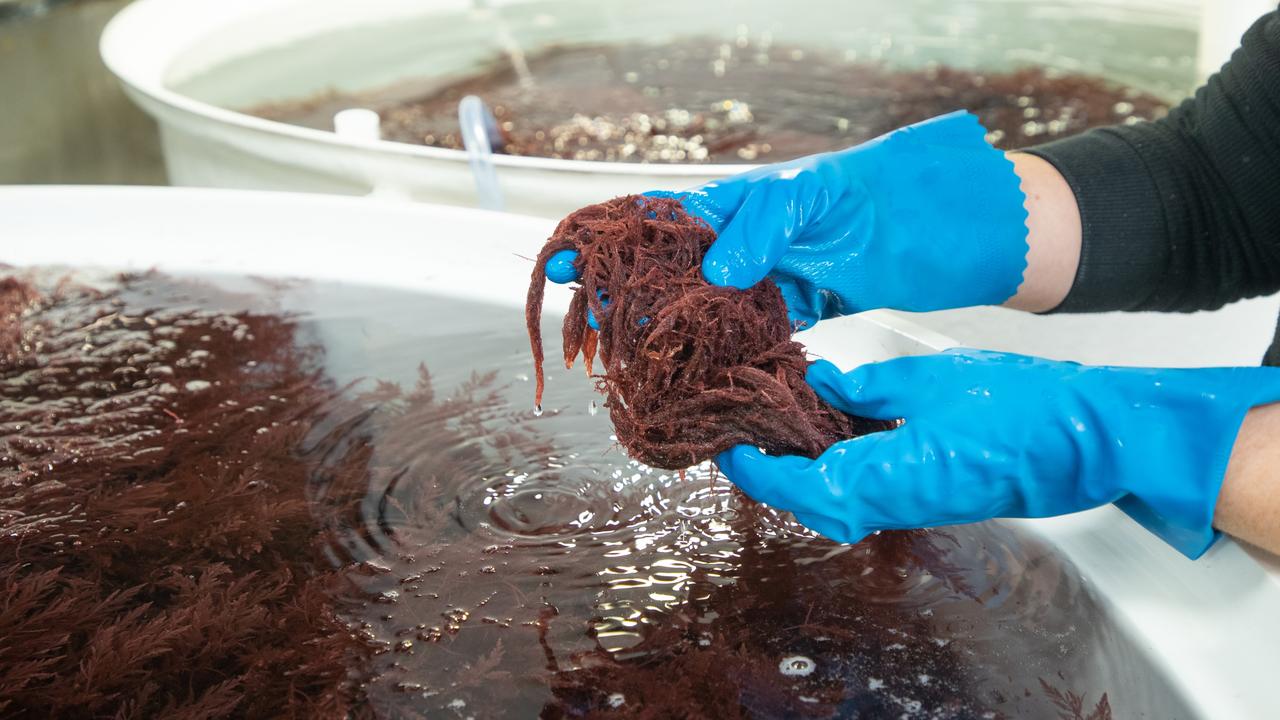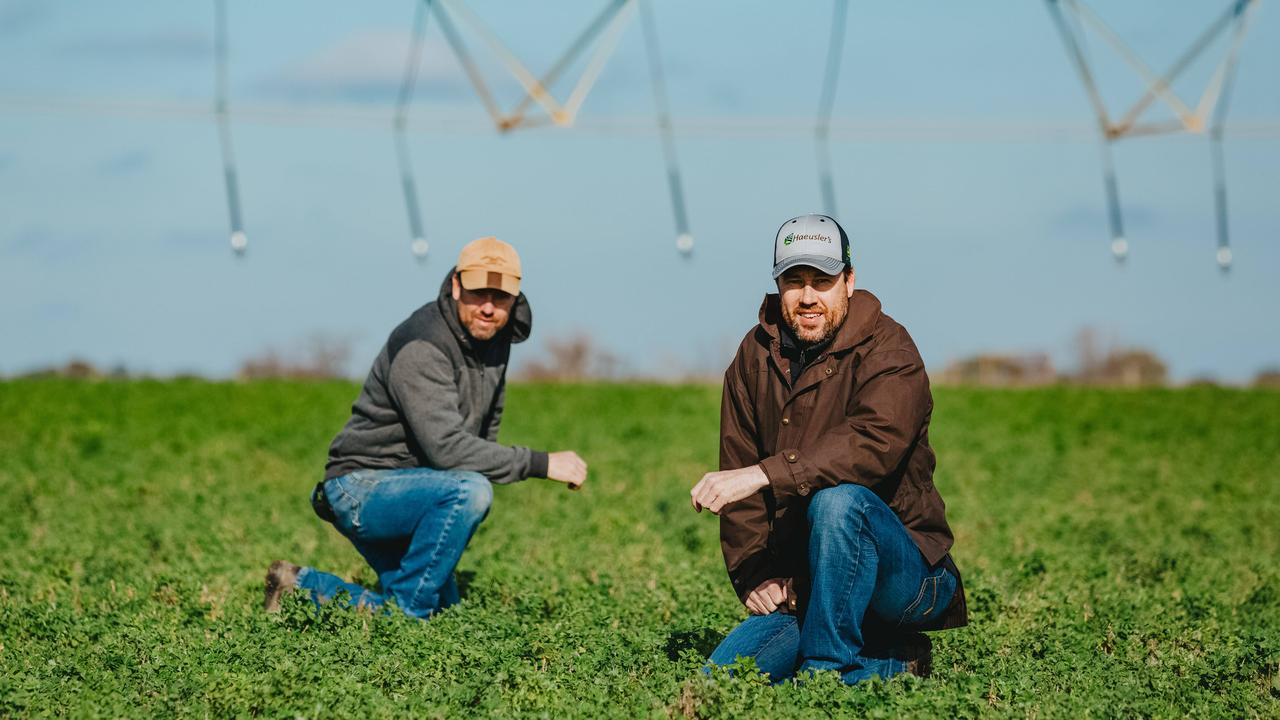Which farm accreditation schemes are worth the time and money
A PLETHORA of accreditation schemes has emerged on the farming scene, but are they worth it?

ONCE upon a time, it was enough to grow a crop or breed an animal and sell it.
But increasingly, the way to achieve premiums for farm produce is to make it stand out from the crowd and not be seen as a commodity.
The number of farm accreditation schemes is rapidly increasing. On the surface, they can seem like a good idea. However, some schemes require a lot of effort, involve outside parties and may not deliver any higher returns at the end of the process.
POPULARITY QUEST
Consumers have an increasing desire to know where their food comes from and want proof it was produced under strict animal welfare guidelines or through sustainable farming methods.
Farm accreditation schemes offer a framework for producing to certain standards. There are accreditation schemes for wool, beef, lamb, even grain. While some are broad industry schemes, others are more specific.
TEST MATCH
By and large, the more effort that’s required to sign up to a farm accreditation scheme, the better the reputation of that scheme.
An example is the European Union accreditation scheme, which allows cattle to be sold into the lucrative EU market. While the EU is not Australia’s biggest beef market, it is the most valuable. Producers who want to sell into this market must be EU-accredited.
The EU-accreditation process in itself is not onerous, but does require a set of standards to be met. These include careful book work that keeps track of individual NLIS tags and matches them with the NLIS database and dates of treatment with animal health products.
Those who are EU-accredited say it takes them a couple of hours a month, but that the requirements are consistent with good record keeping practice, which should be conducted on farms anyway. Other schemes require you to complete information online or include on-farm visits where a company representative will check your record keeping, livestock, how you store your chemicals and even your stockyard set-up.
In the case of wool accreditation schemes, stencils to put on to wool bales are often given out once accreditation has been completed, while others simply give a certificate or a number that can be used when selling.
COUNT COSTS
Some companies will pay for an auditor to visit your farm. This doesn’t necessarily tie you into supplying that company, such as an abattoir, but once your stock are accredited it does keep that option open.
Increasingly, meat companies are asking for livestock producers to sign up to company-specific accreditation programs. This helps that company sell the meat for a premium, capitalising on the known history of the animals and producers.
In industry-wide schemes, such as EU and the Pasturefed Cattle Assurance System (which guarantees stock are grass-fed), audit fees can be charged by the independent auditors. An annual audit for PCAS can cost $900-$1000.
MAKE IT COUNT
It’s important to weigh up the costs and returns for signing up to accreditation schemes. If a scheme does not require a huge amount of additional effort to hold accreditation and it opens the chance to have more buyers interested in what you produce, then there is no real harm in having it.
But if the accreditation requires you to spend money and, just as importantly, time to gain and then retain it, then it must deliver benefits.
An example of where it might not pay is the Pasturefed Cattle Assurance System scheme. It was developed by industry with input from the Cattle Council of Australia to allow processors to assure customers that the beef they were buying had never been fed grain and always run on pasture.
But this has now been joined by grass-assured schemes run by meat companies themselves. They don’t require the PCAS-certification, instead asking producers to sign up to their own program and many companies pay for an auditor to visit the farm.
There are now many accreditation schemes for wool, something which in past years was simply sold in the auction system.
Some companies have their own accreditation, and if wool has a number of accreditations, chances are there will be bids from all those companies.
Accreditation is about trying to generate more competition, and hopefully a better return for what you produce.
While most accreditation programs are incentive-based at the moment (or at least attractive for the chance of gaining extra returns), this may not be the long-term game.
There are plenty who say that down the track, those who do not hold certain accreditations will penalised, rather than those who hold the accreditations receiving premiums.
BUYER BEWARE
Not all accreditation schemes are alike — some have better reputations than others. Company-specific accreditation schemes must be taken at face value. You are signing up to say that you are happy to follow the principles they want for the product they source from you.
Remember it is not a contract of sale. It won’t mean they will necessarily always buy your stock or grain, but it means they might.
Talk to the buyers of your cattle, sheep, goats and grain and ask what they would like in terms of accreditation before embarking on something that might cost a lot and deliver little in return.
Agriculture journalist Fiona Myers has expertise in livestock and wool.
READ MORE
WOOL GROWERS NOW ABLE TO USE WOOLMARK BRAND ON THEIR BALES


